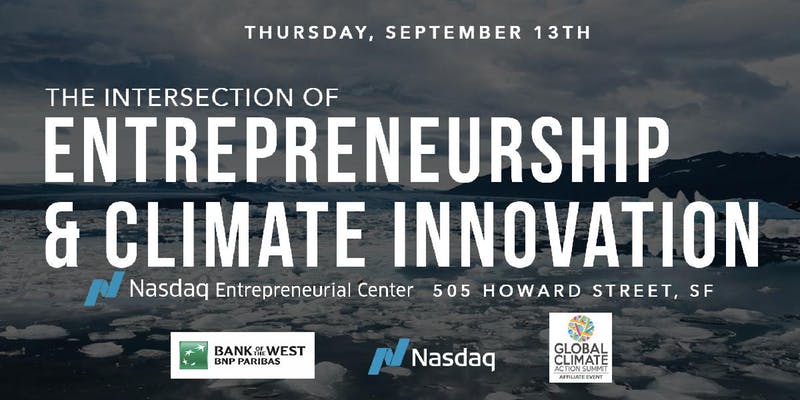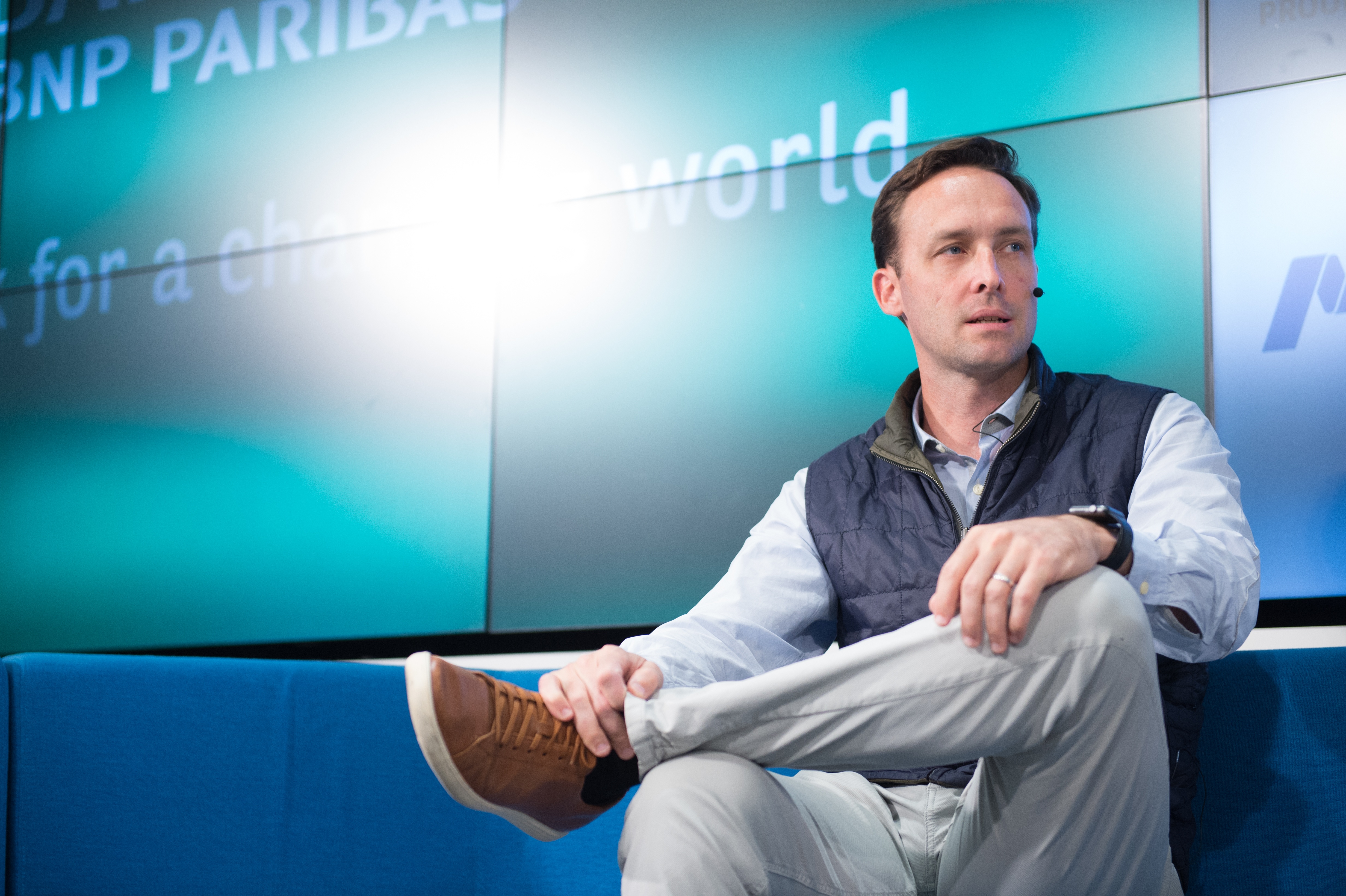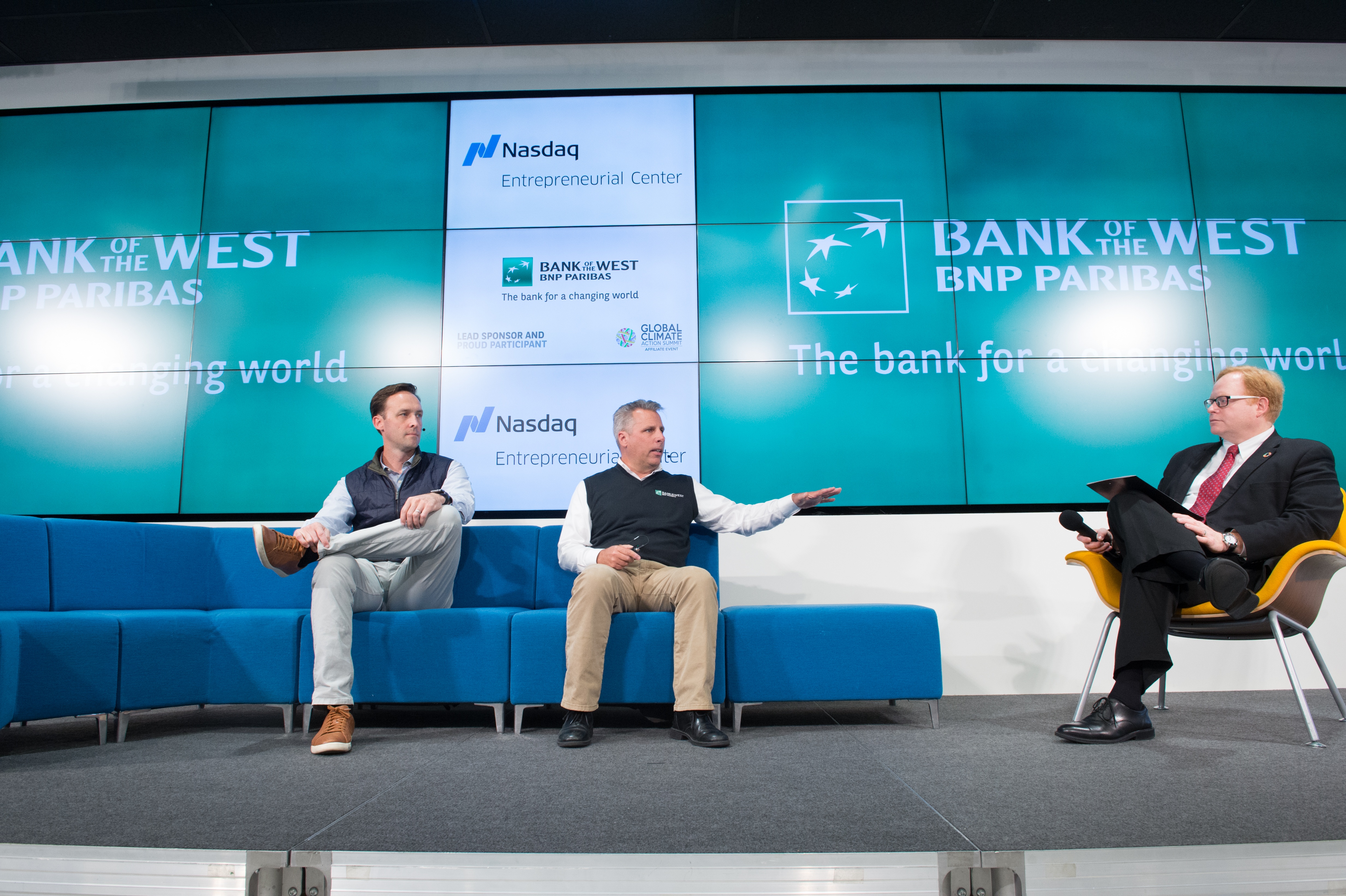
Emerging and experienced entrepreneurs, investors, business leaders and other stakeholders discussed the impact of innovation, growth, and sustainability on environmental dynamics.
Through a mix of keynotes, plenaries, and panel discussions, this program helped shape best practices and emerging expectations, especially in achieving long-term economic development goals, such as the UN SDGs.
Chris Terrell, CEO and Co-Founder, Wexus and Jeffrey Burch, Managing Director, Bank of the West met with panel moderator Evan Harvey, Global Head of Sustainability, Nasdaq to discuss "Dealing with Climate Impacts in Agribusiness" as well as ongoing opportunities and challenges in the farming and agtech sectors.
Here's a quick look at some of the panel questions.
A live recording of the session can be found here at Global Action Climate Summit Livestream (Part 2 of 3) and the presentation starts at 30:40...

Jeff, you’ve been with Bank of the West 17 years working to support farmers grow their businesses. You’ve seen a lot of change. Can you talk about farming of the future, and what you’re seeing today as signs for greater change in 5-10 years. Are we going to see radical change?
Chris, you started your career as a US Army Captain flying helicopters and you’re now CEO and Co-Founder of Wexus, and IoT platform to help farmers be more completive, profitable and valuable. We talk a lot here at the Center about a founders “origin” story – and why they’re driven against all odds to build the businesses they do. Why help farmers, why Wexus?
To both of you, has climate change fundamentally changed the agricultural business model?
Let’s talk about climate change and water as it relates to agriculture. You both work directly with farmers and spend time on the farms.
Chris, how bad is the situation? And what would you want this audience to know?
This is a famous statistic, and Farm Bureau news recently wrote about it - by the year 2050 the global agricultural community will have to nearly double its output to feed 9 billion people.
Jeff, what are you seeing as the biggest hurdles farmers face on food sustainability, labor, and regulation?
Chris, your company is 4 years old and growing. What trends are you seeing amongst your peers, are there more startups and smaller companies in the space looking to solve some of these big challenges?
Jeff, are entrepreneurs pursuing agribusiness as a future opportunity? Why or why not?
Chris, we know growth is critical to the success (and survival) of any startup. In Silicon Valley it’s the famous hockey stick measure. What has your experience been building a company in the ag tech space? Challenges? Opportunities?
Jeff, in your role at Bank of the West, can you talk through some of the funding models you support, and give some examples even – what projects are a good fit for bank financing?
Chris, let’s talk a little bit deeper about funding growth. We’ve got a lot of entrepreneurs in the room with us today and watching online. What’s your approach to fundraising to date and in the future?
Jeff, with your investor hat on, and previous work with startups, what alternative models for investing do you see that are a good fit for smaller companies?
Jeff, as a follow up question, what are you seeing change in the investor landscape? Are there more players, more types of investments happening and why?
You both are passionate about supporting farmers, so much so, you’ve dedicated your professional lives to it (at least for now). And most people don’t know where their food comes from. How can people inside, and outside the ag industry, help support farmers to put food on the table in increasingly sustainable, beneficial ways to our planet as a whole?
